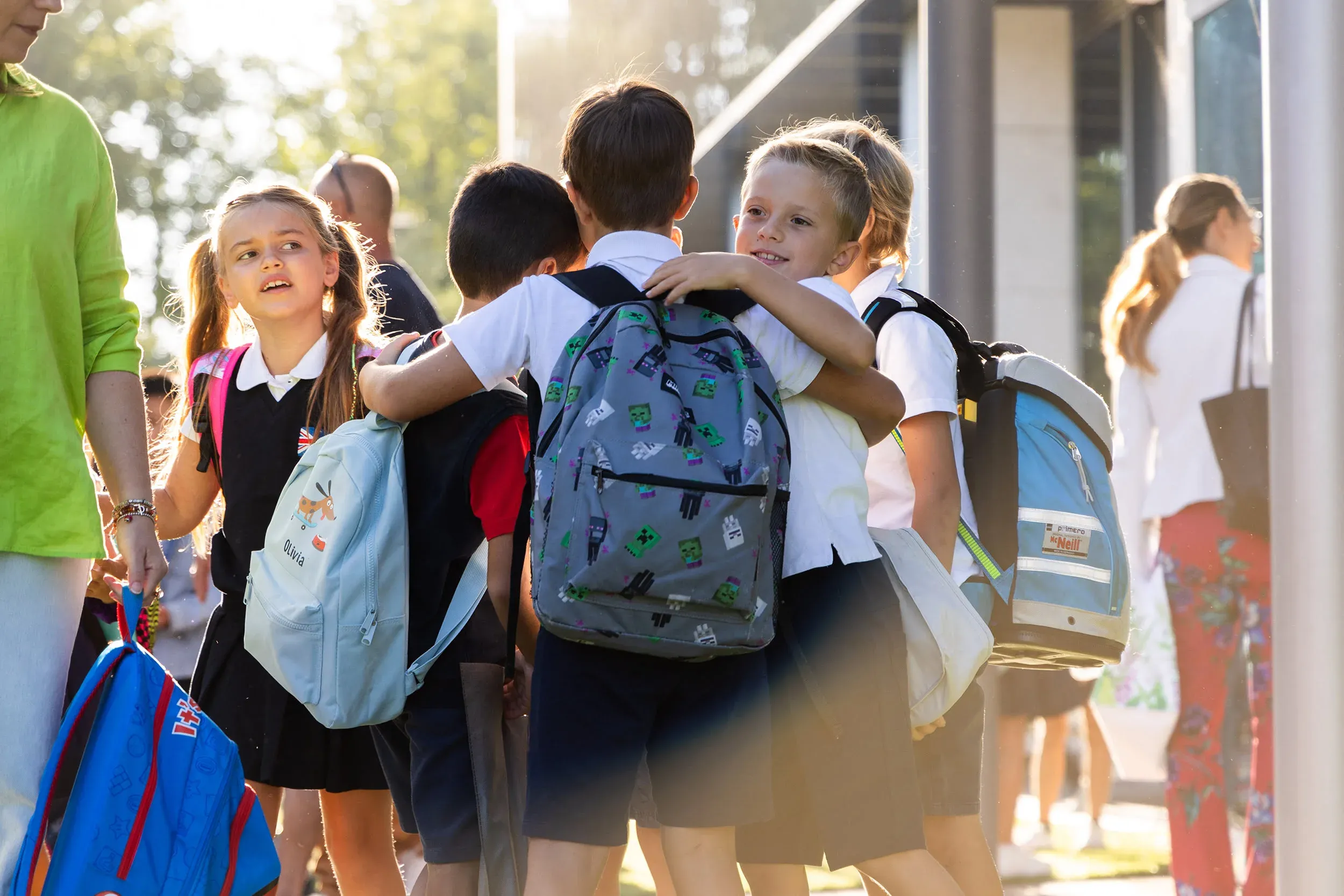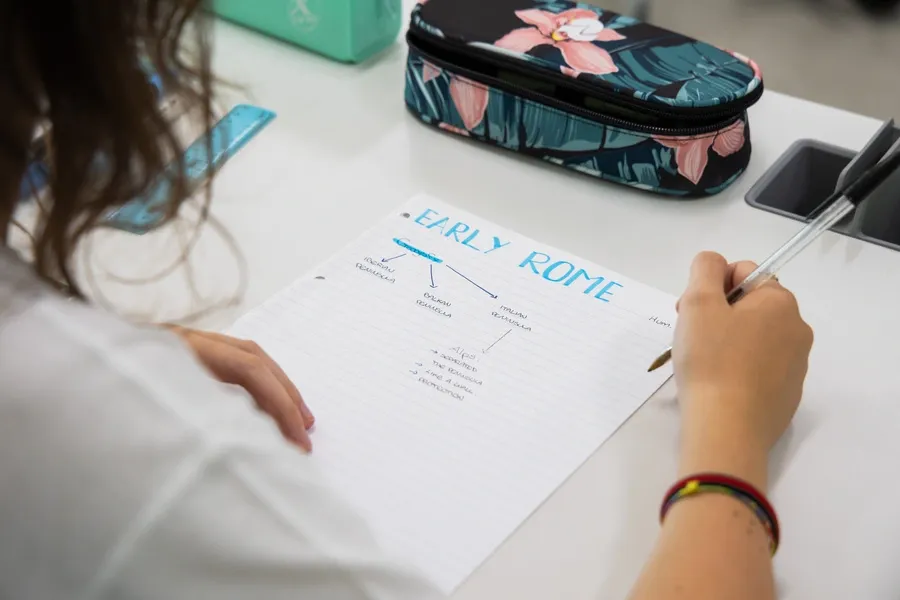Introduction
Educational Excellence in an International and Inclusive Environment
LAAS is a vibrant and dynamic school where students, parents, teachers and staff come together with determination and passion for educational excellence. The school welcomes various nationalities and cultures, offering an international environment that promotes knowledge, personal growth and sound principles within our school community and around the world.
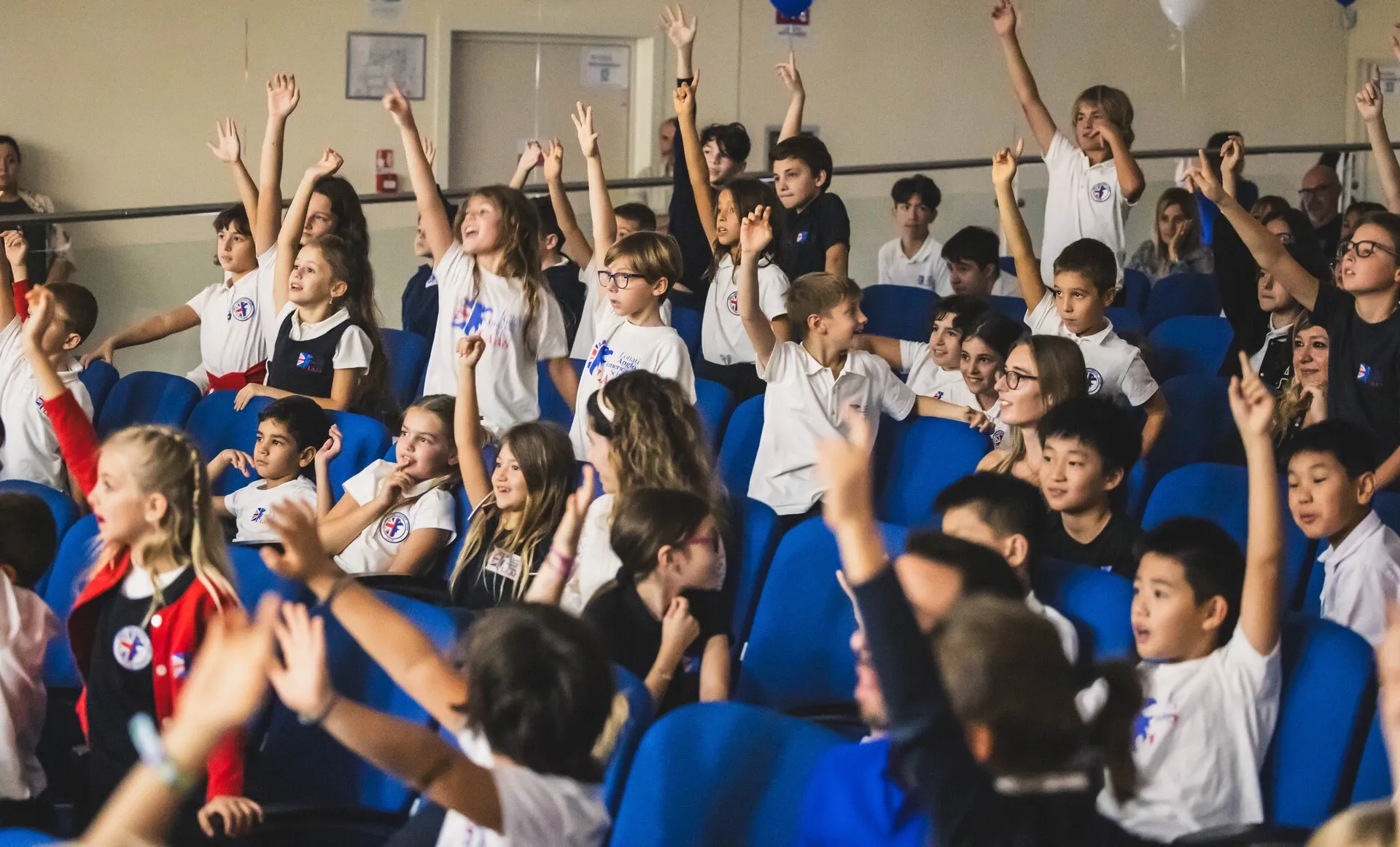
Grade Levels:
Concept Decennale
The student is the main focus of the Anglo-American innovative experience of education, in fact he/she is supported from childhood to adulthood.
Springarten
fino ai 3 anni
La sezione Springarten rappresenta un inizio per i piccoli studenti. L'approccio educativo è basato sul gioco e sull'apprendimento esperienziale. Uno spazio accogliente e stimolante, dove i bambini possono esplorare, imparare e sviluppare le loro abilità in un ambiente sicuro e amorevole.
Svilupperanno competenze sociali, linguistiche, motorie e cognitive.
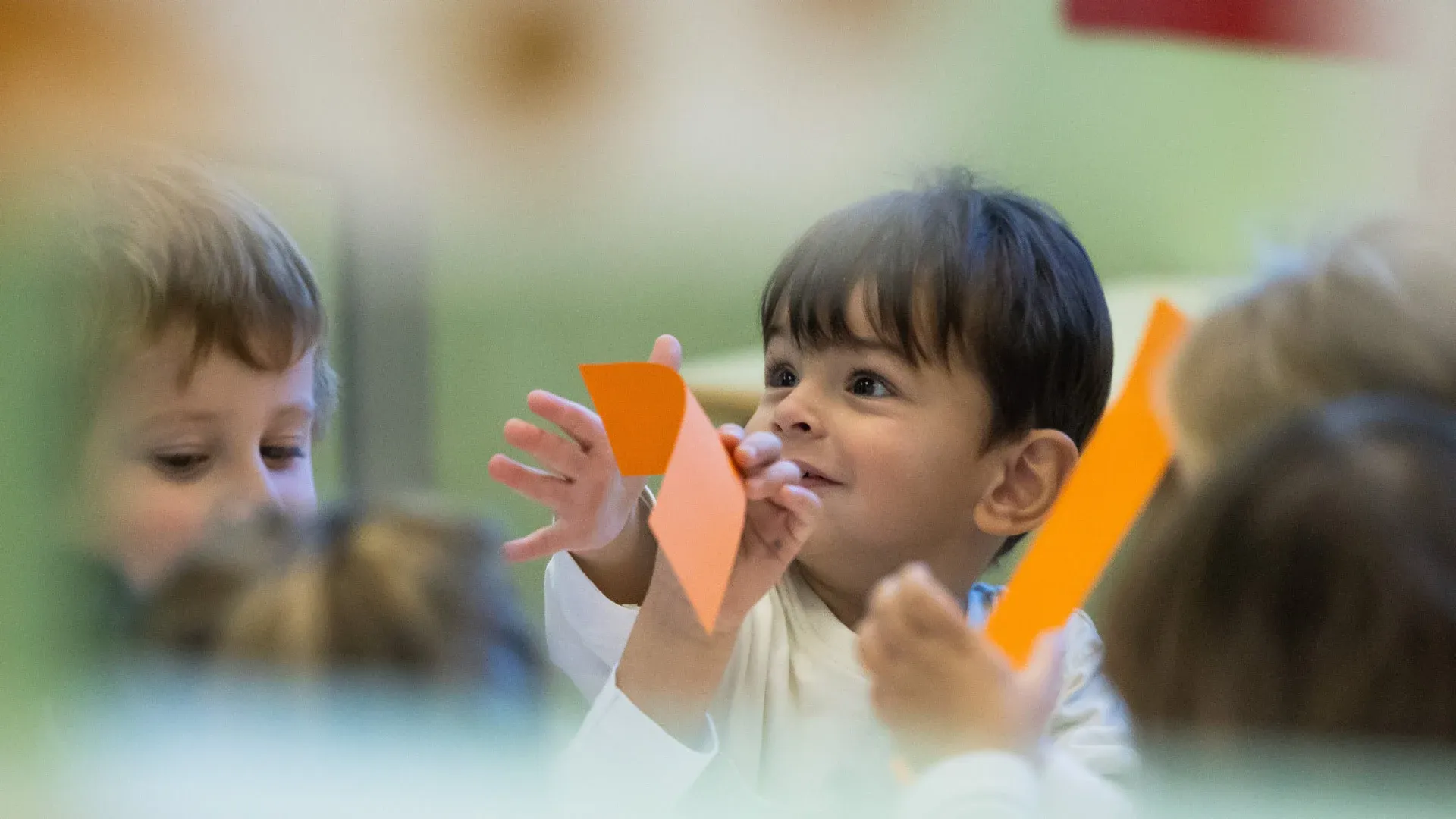
Elementary School
5-10 anni
Il percorso guida i bambini in un viaggio di crescita e apprendimento, che inizia con il Grade 1, attraverso lo sviluppo di abilità scientifiche, linguistiche e cognitive, e si conclude con il Grade 6, quando avranno acquisito competenze in lettura, scrittura e analisi.
Durante questi anni, i bambini apprendono a pensare criticamente ed esplorano il mondo con fervida curiosità.
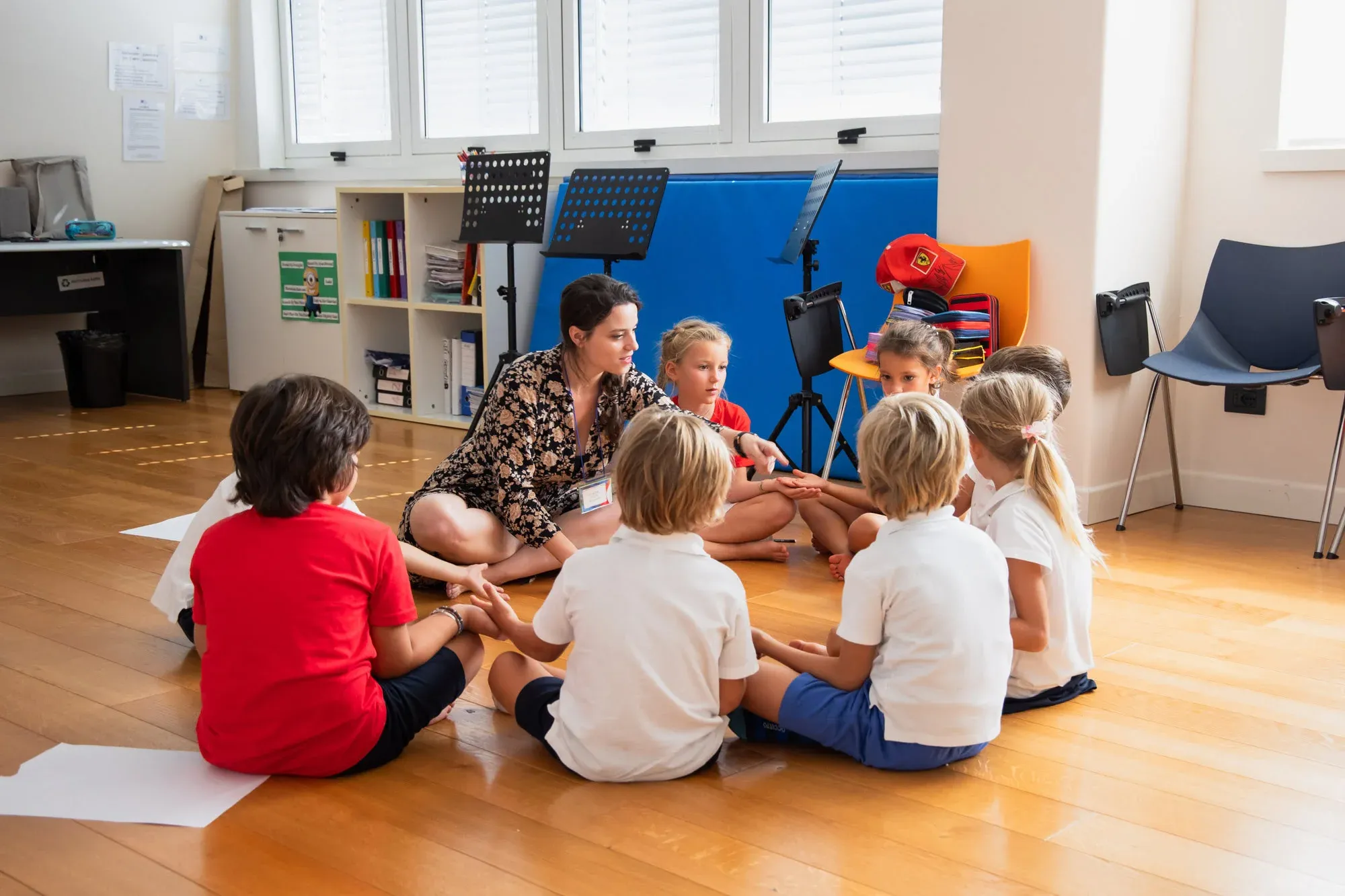
Middle School
11-13 anni
Gli alunni affrontano nuove sfide e partecipano ad attività che valorizzano le loro abilità. Durante la Middle School, i ragazzi arricchiscono il bagaglio di conoscenze e sviluppano una visione internazionale della vita. Viene promosso l'apprezzamento delle sfide e gli studenti sono incoraggiati a sviluppare abilità di pensiero critico, risoluzione dei problemi, ricerca ed espressione creativa.
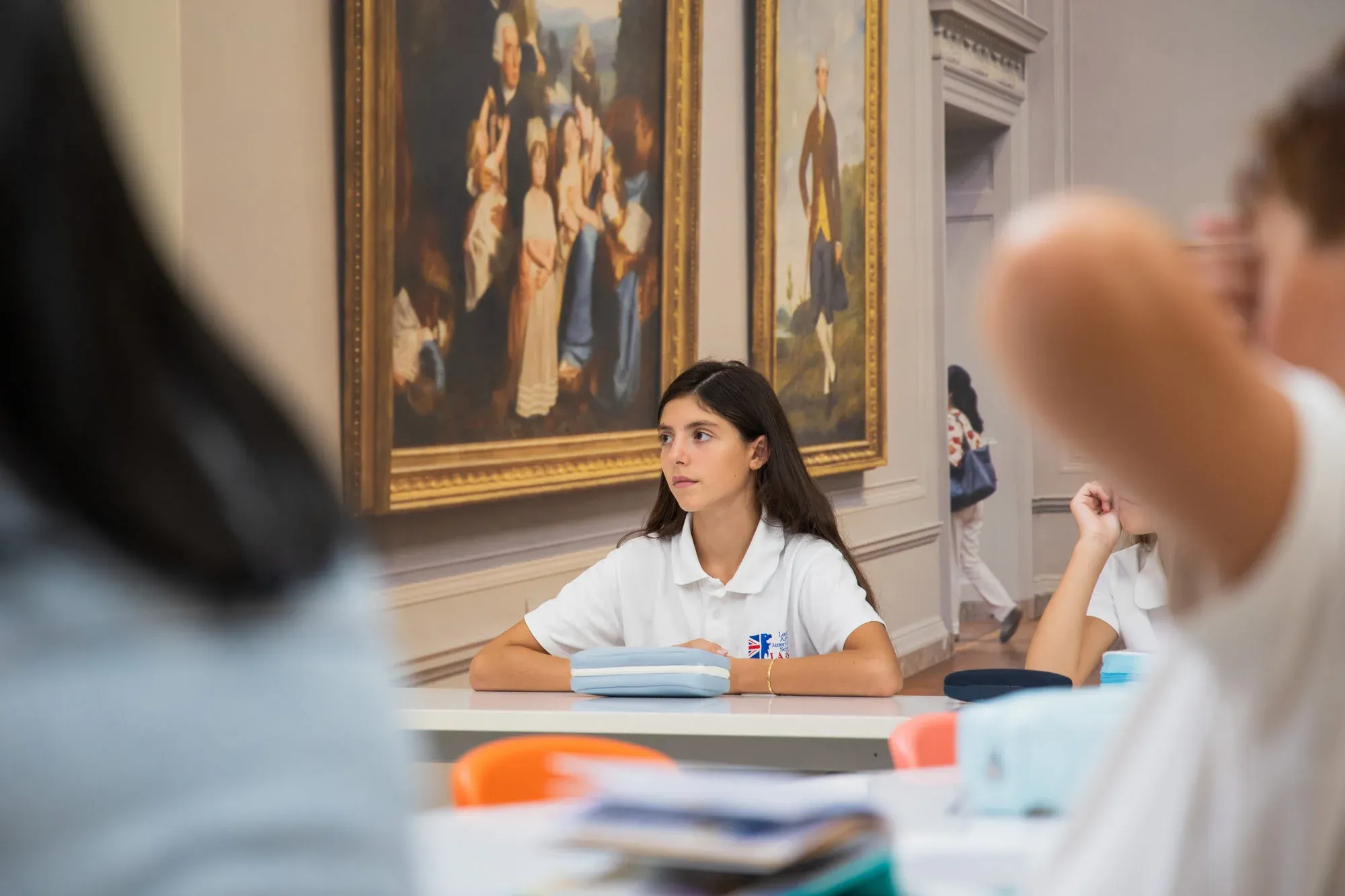
High School
14-18 anni
È il percorso educativo che mira a consolidare l'apprendimento interdisciplinare e l'uso quotidiano delle lingue straniere, in particolare l'inglese, utilizzato per il 70% delle materie insegnate, garantendo inoltre il raggiungimento delle competenze anche in lingua italiana. In questo contesto, promuoviamo l'apertura mentale e la capacità di affrontare le sfide future con consapevolezza e competenza. L'approccio alla didattica è innovativo, progettato per fornire agli studenti una formazione completa e personalizzabile.
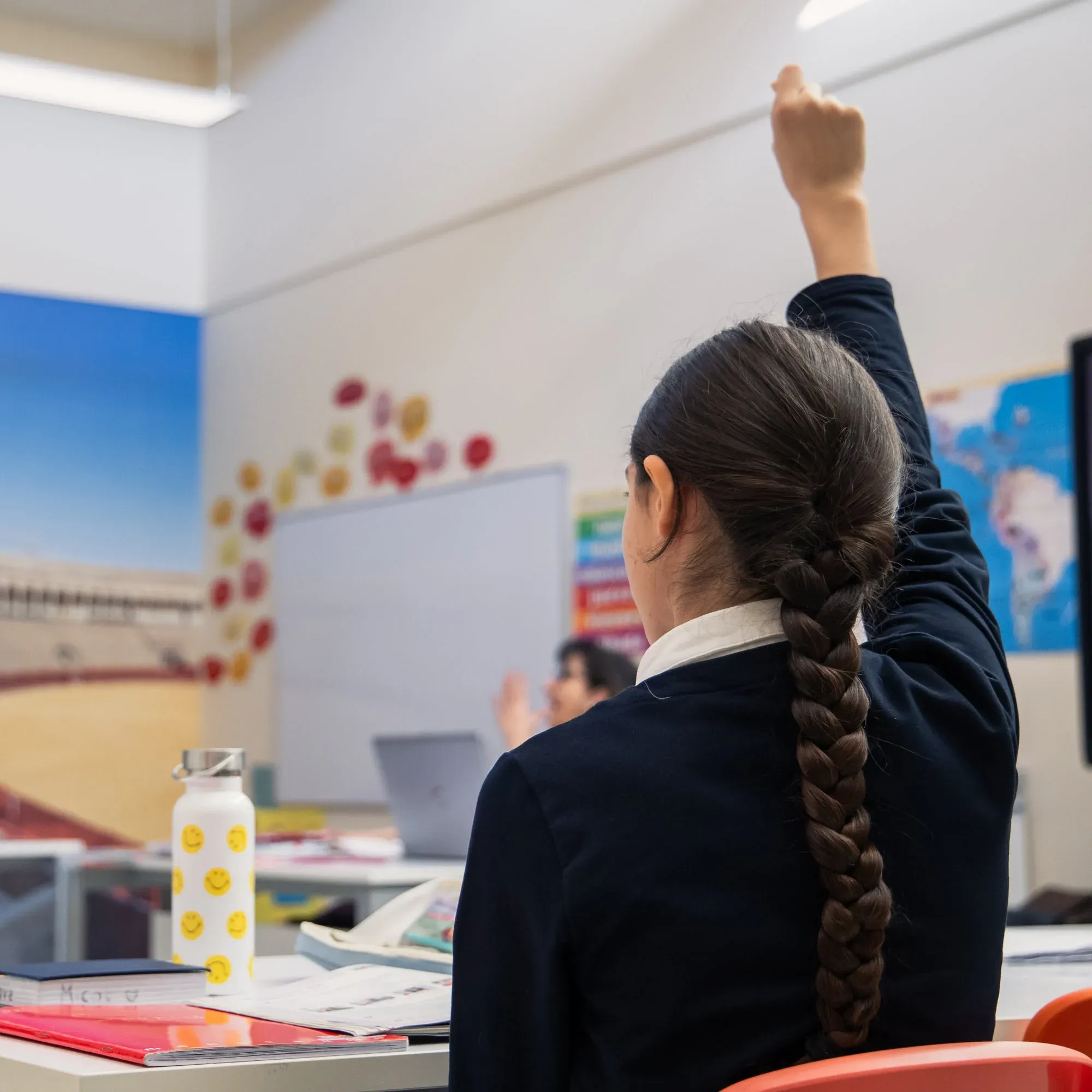
Early Years
3-4 anni
Durante gli Early Years si incentiva la curiosità dei bambini, per consentire loro di esprimere creatività e connettersi con il mondo circostante.
Attraverso un ambiente interattivo e metodi di apprendimento innovativi e coinvolgenti, i bambini sviluppano abilità linguistiche, matematiche e creative in preparazione alla Elementary School.
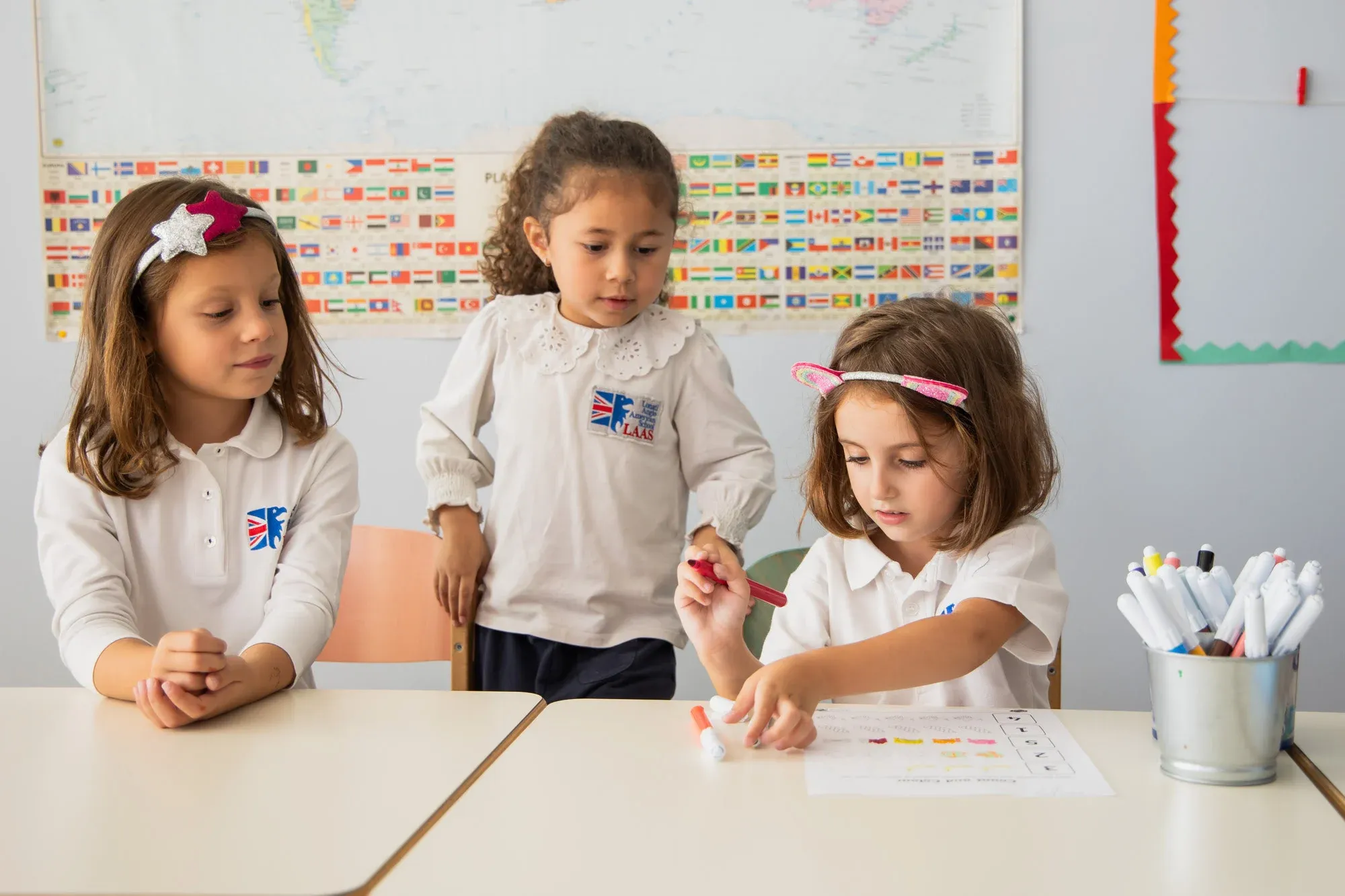
International Baccalaureate PYP
Since September 2016 our school has been officially an IB World School, authorized to provide the Primary Years Programme to our students. LAAS therefore joins 4.526 other schools around the world offering International Baccalaureate programmes, a world-renowned framework for international education.
The values of LAAS
Student-centered – Lessons, activities and experiences that promote the academic, physical and social development of each student according to his/her ability and uniqueness.
Whole child – The sense of identity, purpose, belonging and self-awareness that forms the individual and ultimately improves the world.
International program – The universal in human knowledge, culture and understanding taught and assessed to meet or exceed standards and benchmarks.
Lifelong learning – Wonderment and joy from learning that continues throughout one’s life.

